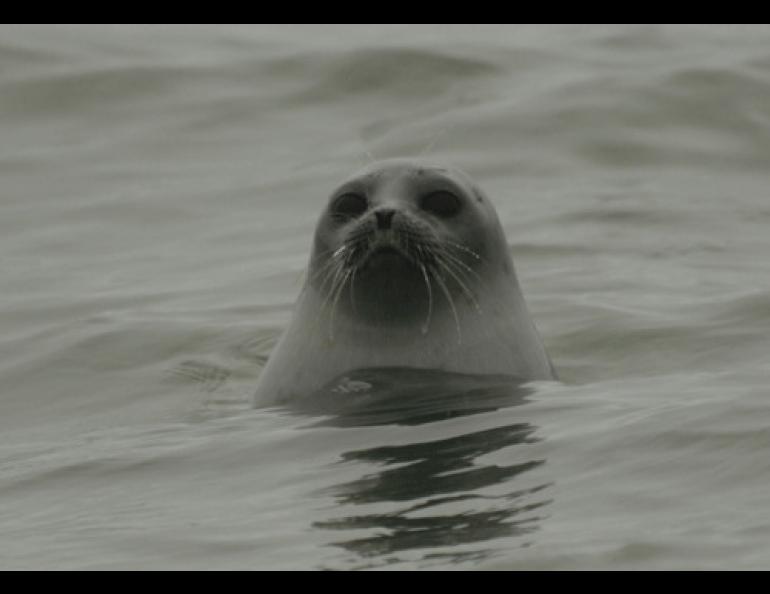
Discovering the secrets of the master divers
In the cold waters off northern Alaska, ringed seals dive for cod and shrimp. Sometimes the seals stay beneath the ice for longer than 30 minutes, which is about six times longer than the best human diver. This ability to survive low oxygen levels has intrigued scientists for years, and has inspired a Boston physician to travel to Barrow to learn more.
Dr. Warren Zapol is the emeritus anesthetist-in-chief at Massachusetts General Hospital in Boston, a Harvard professor and a member of the United States Arctic Research Commission, the duties of which recently brought him to Fairbanks. He is an expert on the workings of the human respiratory system, and pioneered the treatment of newborns with inhaled nitric oxide, which helps “blue babies” breathe. Royalties from Zapol’s life-saving invention, developed with his Swedish research fellow Claes Frostell, have funded some of his current studies.
“He is the only polar researcher I know whose work has actually saved thousands of lives,” said Larry Hinzman, director of the International Arctic Research Center at the University of Alaska Fairbanks.
From his home in Boston, Zapol has for years traveled to Antarctica to study Weddell seals, which hold their breath for more than an hour on dives as deep as 1,800 feet. He and his team discovered that the seal’s spleen is important to its diving ability, as are unique properties of its lungs that help it avoid bubbles forming in blood or tissues when it ascends (“the bends”).
Zapol proposes to head to Barrow to study the hearts and lungs of ringed seals harvested by Native hunters with his team of scientists in June 2011. Following up on ringed seal research done by UAF’s Bob Elsner, Zapol and his team are interested in examining the nuances of a seal’s diving ability.
The mammalian diving reflex is triggered by cold water splashed on the face of warm-blooded creatures, resulting in a dramatic slowing of the heart rate and reduced blood circulation to organs other than the brain and heart. Every one of us has a diving reflex (we were each divers for nine months, Zapol points out), but seals that live under the ice are the masters.
In Barrow, Zapol hopes to examine the relationship of nitric oxide to a seal’s ability to dive without taking a breath for such a long time. For years, people thought nitric oxide was nothing but a pollutant from cigarettes and exhaust from burning fossil fuels. In 1998, three U.S. researchers shared a Nobel Prize for determining that nitric oxide is a remarkable small molecule made within our bodies that transmits information between the cells of our cardiovascular system.
Among other functions, nitric oxide regulates blood pressure by dilating the smooth muscle cells of our arteries. Less nitric oxide production produces more constriction of the kidney’s vessels, for example, and means less blood and urine flow.
Zapol thinks seals have allowed the “diving master switch” to take over their cardiovascular control, hinted at by the fact that — unlike people or other land mammals — seals don’t exhale any nitric oxide. He wonders if, instead of nitric oxide, seals rely on their brains when diving to selectively control blood flow to some organs like the heart and brain and restrict it from others like the kidneys and liver.
Zapol’s team of researchers wants to find out whether the ringed seal genes that are responsible for producing nitric oxide or receiving this signal have disappeared, or whether seals do not express these genes in their blood vessels.
The secrets within the diving power of seals may hold medical promise, which is why Zapol travels to the ends of the earth in his quest for answers.
“It’s a long way off, but it’s a good place to begin to help people with pneumonia, or blue babies, or other medical conditions with low blood oxygen levels,” Zapol said. “Perhaps we can start by understanding how master divers, like ringed seals, evolving over millions of years, can succeed in such marvelous feats of long time breath-holding without getting heart attacks or strokes.”






